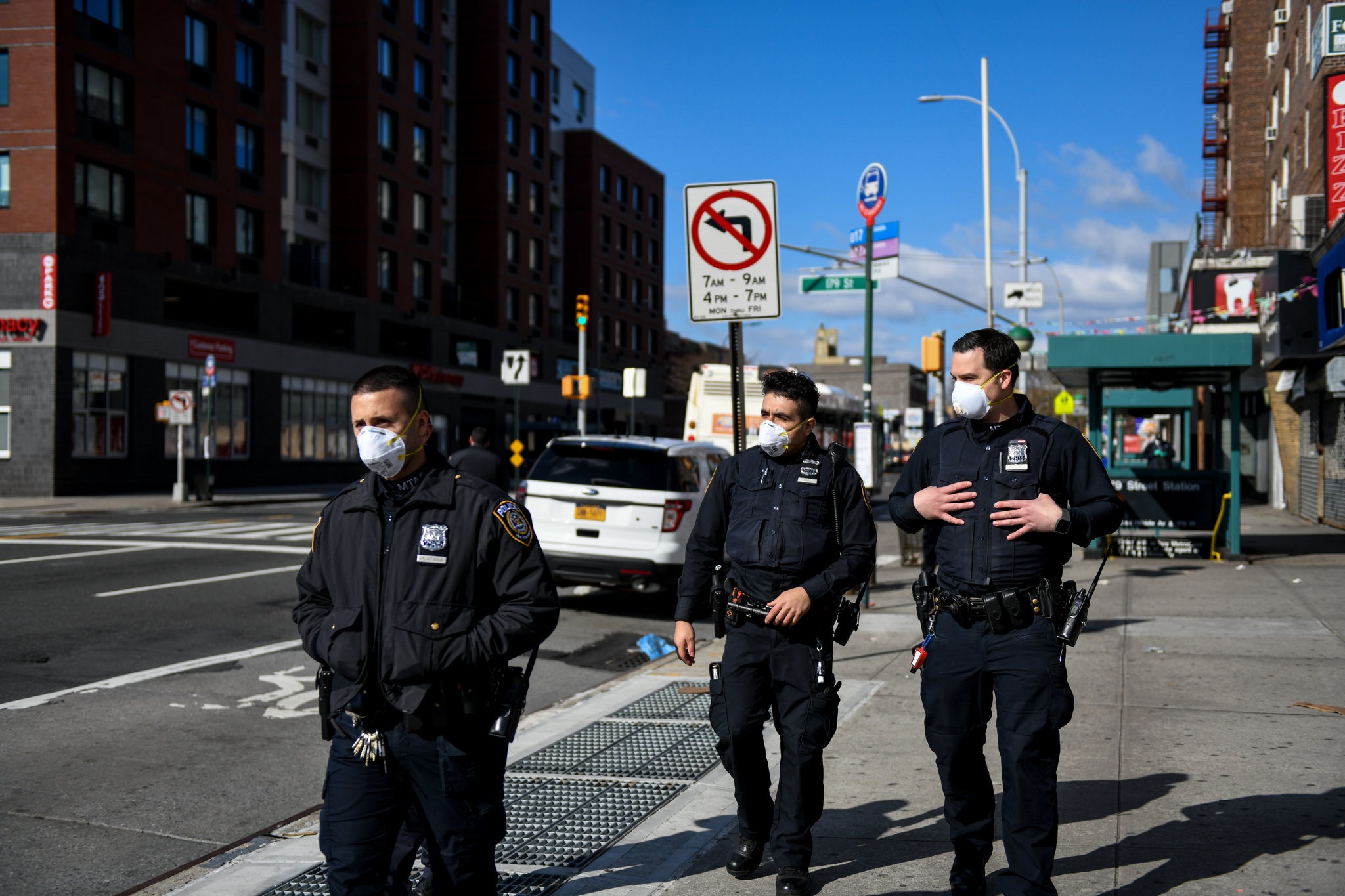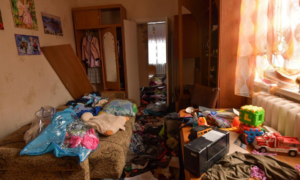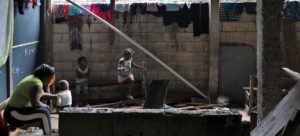Punitive responses will just burden those who have already been hit hard by the coronavirus.
This month, Philadelphia transit police officers violently forced a man off a bus for not wearing a mask. In New York, Gov. Andrew Cuomo raised the maximum fine from $500 to $1,000 for breaking social-distancing protocols, and Mayor Bill de Blasio has deployed Police Department officers to enforce them and make arrests. In Kentucky, judges are ordering people who have tested positive for the coronavirus and have broken quarantine to be fitted with ankle monitors — with the threat of arrest if they leave their homes. In Florida, a judge ruled that people arrested for breaking quarantine can be held without bail.
Punitive responses like these will unfairly burden the black and Latino communities that have already been hit hard by the coronavirus. There are smarter and fairer ways to encourage compliance with social-distancing practices.
Aggressive enforcement risks a replication of patterns we’ve seen before. The war on drugs resulted in black and Latino people arrested at much rates higher than white people for the same low-level offenses. The reliance on law enforcement to address addiction ignored the underlying health, social and economic issues minority communities face and, if anything, exacerbated them. Deploying police officers to enforce social-distancing rules could do the same.
This will be the case even if fines are used instead of arrests. It’s well documented that police departments have targeted black communities with fines — which can quickly result in jail times for lack of payment — as a way of supplementing income for municipalities. Black people are already disproportionately targeted for infractions like jaywalking and loitering.
If history is any indication, we can expect to see the highest levels of enforcement in the same communities that have been hit hardest by Covid-19. This is especially concerning because those in working-class retail and service jobs — which black and Latino people are more likely to fill — often don’t have paid sick leave and are thus less able to practice social distancing than those who are more affluent.
Surveillance and overpolicing in minority communities can cause their own health problems. New York’s stop-and-frisk program, which a federal judge found was carried out in a way that violated the Constitution and deemed a form of racial profiling of young black and Hispanic men, was associated with poorer physical health and poorer psychological health among men and boys in neighborhoods with more police stops.
Today, fear of police encounters could prevent or delay people in heavily policed black and Latino communities from getting groceries or medications, or taking short walks in their neighborhood — potentially worsening health outcomes. The situation gets even more precarious for undocumented people: With Immigration and Customs Enforcement still conducting raids, an encounter with police could lead to deportation.
One might point to images of crowded beaches and public parks as evidence that quarantines and social-distancing measures need to be enforced. But we should ask ourselves how such policies and stay-at-home orders can be enforced most effectively and without racial bias.
There are alternatives to punitive enforcement. In Alaska and Maine, police departments are reporting that their focus is on education and that they want to avoid arrests and fines as much as possible. States could deploy public health officials or trained volunteers to areas where the public tends to congregate, and remind people not to gather. These people could offer resources to those who are not complying with stay-at-home measures because they are homeless, do not have their own transportation, or are desperate for essentials like food and medicine.
Beyond that, to encourage people to stay home, the federal government could guarantee partial wages for workers, as France has done. It could ensure that companies give employees paid sick leave. State and local governments could distribute masks to the public, as the authorities do in Singapore; limit access to parksrather than close them outright; and start programs to deliver food packages to vulnerable people, as the government does in Britain.
A punitive response to fighting the pandemic risks exacerbating stark inequities in our society. We can encourage Americans to stay home without threatening the health and well-being of the vulnerable, and we should begin tackling the inequalities that have long been with us (and that will continue to be with us) long after the pandemic ends.
Brandon D.L. Marshall is an associate professor of epidemiology at the Brown University School of Public Health, where Abdullah Shihipar is a master’s degree candidate.




